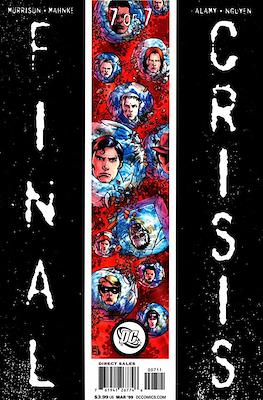
I took it as an opportunity to tell a modern story of Gods interacting with superhumans in the contemporary setting of the DC Universe. GM: The “inspiration” came from DC boss Dan DiDio who suggested I tie some of my ideas about reviving Jack Kirby’s brilliant New Gods characters into an “event” story which would lead DC’s summer 2008 publishing schedules. What inspired this event and (for those who may not have read it yet) how would you characterize the ideas and concepts in play within this epic series? PWCW: Another major project you’re working on at present is Final Crisis. The superhero always mirrors the emotional needs of his audience, and comic book creators adapt-sometimes quite unconsciously-to provide the kind of protector and role model each age demands. The coming wave is more escapist, more psychedelic in tone. In recent years, we’ve seen the superhero as celebrity and as super-soldier, tool of the Military Industrial Complex. You have only to look at the different versions of Superman in each decade since his creation-the ferocious, feisty Socialist reformer of the Depression years became the upstanding law-abiding super-cop of the 40s, then the cosmic-suburban ‘dad’ of the 50s, the endlessly shape-changing ‘LSD’ Superman of the 60s, the troubled seeker of the 70s, the confident yuppie of the 80s, each step of the way matching, reflecting and, in some cases, even predicting social change.


Superhero comics, like all pop trash art, tend to function as reliable barometers of cultural change.


 0 kommentar(er)
0 kommentar(er)
